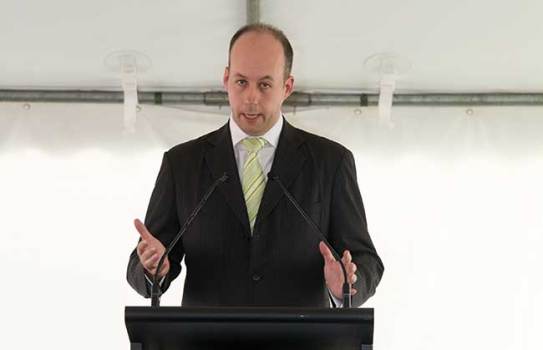
Kathleen O’Brien spent 11 years working for iconic shoe brand Nike but these days she is selling the big picture of how digital retail disruption is going to hit governments big and small.
As Industry Principal of Public Sector hybris, a subsidiary of German software juggernaut SAP, she is helping the Department of Human Services with its Digital Transformation Strategy and hybris is beginning to work with other public sector clients such as Auckland Council and Fire and Rescue NSW.
Ms O’Brien says that although Australian government departments and agencies are generally doing a good job engaging digitally with citizens there is a large body of knowledge that can be leveraged from the private sector. In particular, government can learn from how the retail sector has reacted since the massive digital disruption it has seen since the nineties, whether from web browser, Google search, Ebay, PayPal or Kindle.
“Everything transformed by consumers taking the driver’s seat and raising their expectations of how they interacted in the retail world,” Ms O’Brien says.
“Government needs to understand that people creating that disruption are also creating the disruption in government. They want the same consumer grade experience and they don’t want it to be hard any more.”
People have got used to buying products and services in three clicks, supplying information once only and using their Smartphones to carry out transactions and they expect governments to have caught up and be offering a similar experience.
“Everything has become very streamlined and on demand, whether it’s Spotify or Netflix, and the one thing that doesn’t quite come up to scratch is government services.”
It’s not for want of trying, says O’Brien. She says Australian government is willing to innovate and has already made substantial in roads.
“We as citizens are much more demanding and governments realise it. They still don’t feel like they have the capability to actually deliver it,” she says.
“The key learnings are going mobile first, realising that people are on a number of devices and want to interact with them, not overloading people with apps but delivering content responsively.”
It is an area she says that DHS is focused on, making the digital interactions that people have with the department simple and intuitive, with the goal of having 80 per cent of all transactions online. Responding to users’ criticisms that have been levelled at DHS mobile apps, she said although getting apps right was important, a fully responsive website first which citizens could access with any kind of device was the crucial building block.
The endgame, says O’Brien, is to have a situation where the various agencies are almost invisible to the citizens interacting with them. It is a world of personalised experience, where an individual’s situation is known, e.g. the system knows that the person logging in is a pensioner, a student or a part-time worker with two children, and they are presented only with relevant information and content.
But although government faces many similar challenges to the private sector, Ms O’Brien admits that the public sector is grappling with a much greater degree of data and process complexity.
“Data silos make it really impossible to take advantage of the new technology and [to] be able to do some of this personalisation and take advantage of guided processes. These data silos are in the way of making things possible to support a transition to an omni-channel experience.
“The sheer number of legacy applications in government agencies are quite challenging, although it’s also a problem in the private sector.”
She says the public sector needs to “let go” of data silos and even tear down political structures within organisations in some cases and work with software and implementation partners to produce a strategy, advice many agencies are following as they work on their Digital Transformation Strategies.
Ms O’Brien will be speaking about how government can better engage citizens at the Technology in Government conference in Canberra, which is on August 4 and August 5.
Comment below to have your say on this story.
If you have a news story or tip-off, get in touch at editorial@governmentnews.com.au.
Sign up to the Government News newsletter
Most read
Scathing report finds little has changed at PwC
Qld council welcomes progress on massive battery system
Inquiry to consider how federal govt can address councils’ sustainability issues
‘Local’ procurement turns out not to be so local, committee hears
Another report finds local government falling down on cyber security

